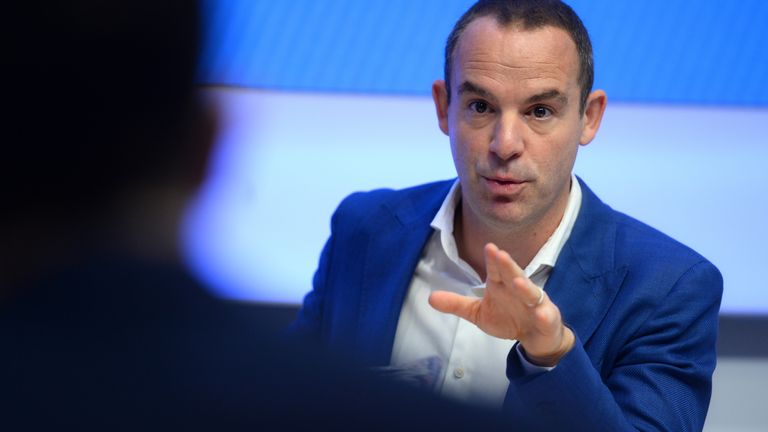New laws must be used to make sure online platforms protect their users from scams, the government has been warned.
Seventeen consumer and business groups and authorities have said scams should be included in the proposed Online Safety Bill, which could be announced in next week’s Queen’s Speech.
The inclusion would protect consumers from an “avalanche” of scams that are causing “devastating financial and emotional harm”, they said.
The coalition includes Which?, City of London Police, the Association of British Insurers (ABI), UK Finance, and MoneySavingExpert.
Martin Lewis, founder of the Money and Mental Health Policy Institute and MoneySavingExpert.com, said: “It beggars belief that the government’s Online Safety Bill could ignore the epidemic of scams that the UK faces – but that’s the plan.
“The policing of scams is critically underfunded, leaving criminals to get away with these frauds with impunity.
“The government has a chance to at least deny them the ‘oxygen of publicity’ by making big tech responsible for the scammers adverts it is paid to publish.
“I plead on bended knee for the government to take that opportunity, by putting scams in the Online Safety Bill. Failing to do so will betray its promise to create world-leading online protection and will leave vulnerable people defenceless against online crime in the midst of a global pandemic.”
In an open letter to Home Secretary Priti Patel and Digital Secretary Oliver Dowden, the coalition wrote: “Online platforms play a pivotal role in enabling criminals to reach and defraud internet users through the hosting, promotion and targeting of fake and fraudulent content on their sites, including adverts that they make significant profits from.
“Yet platforms have very little legal responsibility for protecting their users, despite often being the best placed to tackle harmful content.”
Action Fraud says Britons lost about £1.7bn to scams over the last 12 months and that, in the year to June 2020, 85% of all fraud was cyber-enabled.
But the coalition says the actual financial losses are likely to be much higher, as well as the emotional effect on victims.
Which? chief executive Anabel Hoult said: “The time for self-regulation is over, as clearly it has not worked. The case for including scams in the Online Safety Bill is overwhelming and the government must take the opportunity to act now.
“Online platforms must be given a legal responsibility to prevent, identify and remove fake and fraudulent content on their sites so that their users are better protected.”
David Postings, chief executive at UK Finance, said: “The banking and finance industry is tackling fraud on all fronts, but we can’t do it alone. We need other industries, including the online platforms exploited by criminals, to join the fight and take responsibility for criminal activity that is happening on their doorstep.
“It’s not right that online giants are effectively profiting twice – once from criminals marketing scams on their platforms and again from organisations having to advertise fraud warnings to consumers.”
A government spokesman said: “The government is working closely with industry, regulators, law enforcement and consumer groups to tackle online fraud.
“This includes our Online Advertising Programme, which will consider further regulation relating to online advertising to reduce online harms, recruiting more police with specialist skills as part of our commitment to recruit 20,000 new officers, and providing scam reporting and takedown services which to remove malicious or fraudulent websites.”


